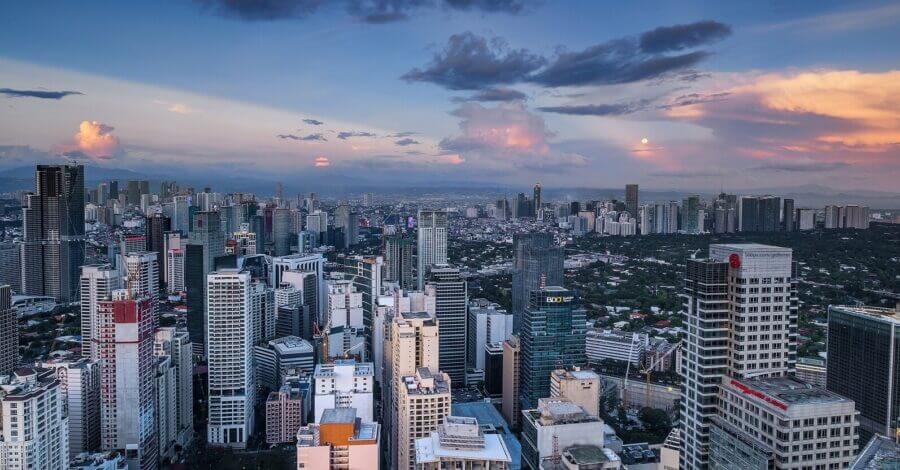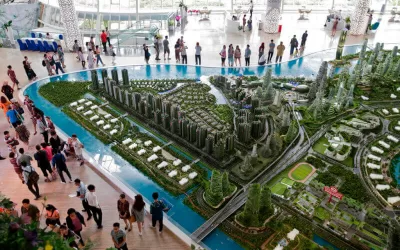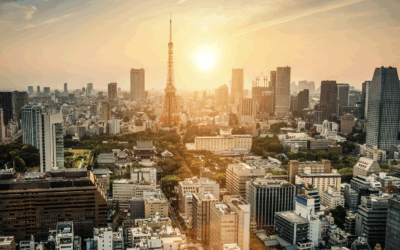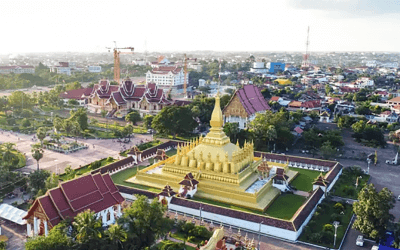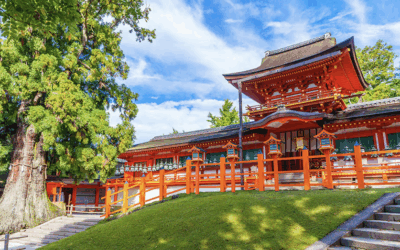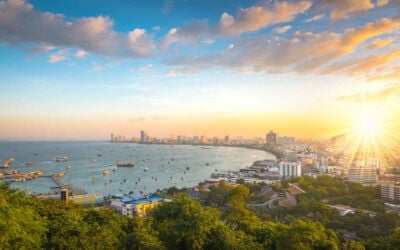Last updated April 3rd, 2025.
If you’ve never visited the Philippines, you may ask: why would anyone ever want a condo in Manila?
Real estate in Manila is a relatively sound long-term investment. The Philippines is a beautiful country with a rich culture and heritage, and is ranked as one of Southeast Asia’s fastest-growing economies over the past decade.
Indeed, buying a condo in Manila is a bet on demographic trends. The Philippines has a young and quickly-growing population of skilled, English-speaking workers.
Nonetheless, and despite its rapid urbanization rate combined with a growing middle class, Philippines real estate prices remain low compared to other countries in the region..
This rare combo of a strong economy and cheap property in Manila attracts international investment. Indeed, countless multinational firms rent an office in the Philippines.
Additionally, and despite its faults, the Philippine government welcomes foreign investors with open arms.
Foreigners can buy real estate, trade stocks, and start a company in the Philippines with relative ease.
That gives the Philippines a major edge against its more closed-off neighbors in emerging Asia, including Vietnam and Laos which make things more difficult as a foreign property buyer.
Due to these positive trends, Manila’s real estate market is booming. Property prices have been soaring in the past few years – yet values are still rather cheap when compared with the rest of Southeast Asia.
Given the country’s low costs, high rental yields, and strong appreciation potential, it’s arguably a prime time to invest in Philippines real estate. Buying a condo in Manila is a great way to get started.
As you read below, remember that this guide focuses specifically on condos in Manila – not houses or commercial real estate.
Feel free to consult our general guide on property in the Philippines for more about info about houses rather than condos and apartments.
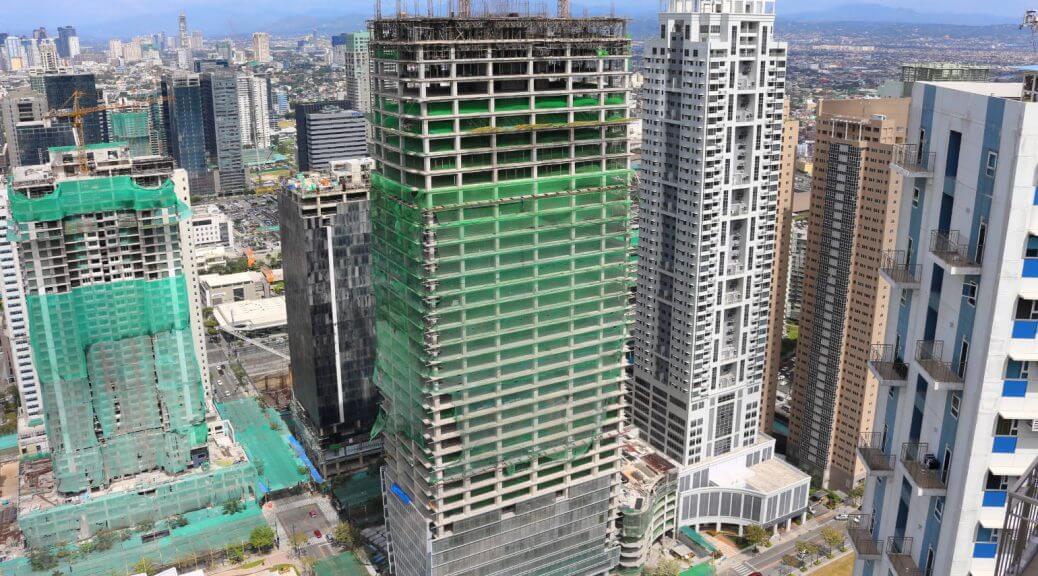
Foreigners can easily buy a condo in the Philippines. It gets more complicated if you’d like to own land or a house, though.
Foreign Property Ownership in the Philippines
In the Philippines, foreigners can own various types of property, including condos and houses.
However, foreigners cannot own land. For instance, if you buy a house on the beach in Cebu, you will need to lease the land that the house sits on. These leases typically last for up to 50 years, and you can extend them for another 25 years.
Foreigners can technically own land through a Philippine corporation, but that buying method requires proper structuring and different share classifications.
Landholding companies in the Philippines must have 60% local ownership, and you’ll need a lawyer to properly incorporate such a business.
Fortunately, anyone buying a condo in the Philippines has no such restrictions placed on them. The only law that you must be aware of is a 40% limit on foreign-owned units in a building.
So, while you can easily own a Manila condo outright on a freehold basis, your search will be restricted to buildings that haven’t yet reached their limit on foreign ownership.
How Much Does a Manila Condo Cost?
Although Manila is growing rapidly, its real estate prices remain among the cheapest in the world. An average condo in central Manila will cost roughly $2,500 per square meter.
Naturally, condo prices in Manila vary among neighborhoods. If you want to buy property in Makati, Manila’s financial hub, plan on spending far more than if you’re looking on the outskirts of the city.
Even in the heart of Makati, however, you’ll still find condos that seem like a steal. The mean cost for a unit in Makati is priced below $300,000.
You can find smaller condos for sale in Manila listed at only $100,000. These numbers drop substantially if you leave the city center.
While Manila properties are inexpensive now, prices have increased over the past decade. Practically any condo for sale in Makati or Bonifacio Global City has appreciated steadily in value over the past decade, thanks to the country’s growing population.
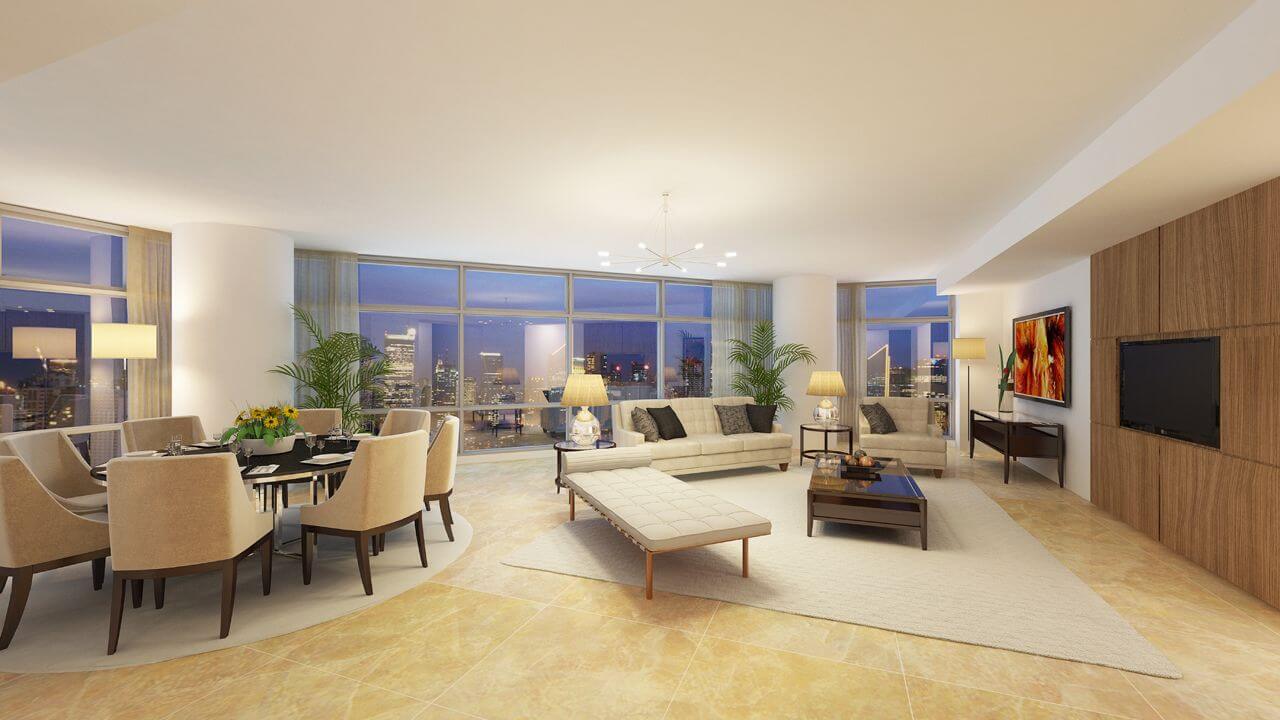
In Manila, you can buy practically any type of condo imaginable – and in any price range. Whether you’re looking for a small $50,000 condo for sale in the Philippines or a multimillion dollar penthouse, you can probably find it.
Best Places to Buy a Condo in Manila
Metro Manila consists of a collection of different cities. Manila proper is densely populated and filled with historical sites, but condominiums are few and far between.
Therefore, condo buyers might consider looking outside of the city center to business districts and suburbs like Makati and Quezon City.
Businesses, expats, and upper-class Filipinos tend to favor these areas, ranking them as the top neighborhoods in Manila to invest in real estate.
Makati
If you wish to live in an upscale area in the heart of the city, look no further than Makati’s condo market.
Makati is Manila’s financial and business hub, hosting more international companies than anywhere else in the country. Its convenient location and high-end lifestyle attract both expats and upper-class locals.
The area is, however, far more expensive than other parts of Metro Manila. A luxury condo will often sell for roughly $5,000 per square meter – nearly twice the city average.
Despite Makati’s seemingly high prices, you can still find excellent properties for well under $500,000. Comparable units in other Asian CBD’s might cost double, triple, or even quadruple what you’ll pay in Manila.
You should also keep in mind that real estate prices in the Philippines have been on the rise over the past – especially housing in Makati and other top locations in Manila.
For the most part, anyone who bought a condo in Makati saw double-digit appreciation over the past decade.
Quezon City
If you want to escape Makati’s relative hustle and bustle, then consider buying a condo in Manila’s central neighborhood of Quezon City.
This suburb in north Manila attracts residents with a combination of value and convenience. A condo here will typically cost half as much as a similar property in the city, and many areas are well-developed.
You can find a massive two-bedroom condo for sale in Quezon City for under $100,000.
Getting to the city center of Manila from Quezon City is also rather easy. For instance, if you live on Commonwealth Avenue, you can follow your street directly into downtown Manila.
Quezon also has a great selection of condo developments to choose from. Eastwood City and similar communities offer many residential units, retail businesses, and even IT parks within walking distance.
Bonifacio Global City
Bonifacio Global City (BGC) is located in Taguig, an up-and-coming district along the coast.
Two of the Philippines’ largest developers, Ayala Land and Evergreen Holdings, master planned BGC as a well-developed area to attract international businesses. Unlike other parts of Taguig, BGC does not suffer from flooding and other infrastructural headaches.
BGC’s high-quality developments attract businesses, locals, and expats alike, and you’ll find plenty of shops, restaurants, and entertainment within walking distance.
However, like in nearby Makati, the price of condos in BGC are rising rapidly, so you should invest soon.
Property Tax in the Philippines
Taxation is a major drawback of investing in Manila real estate – especially if you don’t plan to become a resident.
First, the Philippines requires buyers and sellers to pay a property transfer tax of 6% of a home’s market value. This fee is normally split between the two parties.
Once you make your purchase, you must then pay an annual property tax based on the appraised value of your condo in Manila.
If you own real estate in the Metro Manila area, you’ll only pay up to 1% annually but may pay up to 2% outside of the city.
Property taxes aren’t particularly high. Yet if you plan to rent your condo, expect to pay much more. Your rental income is subject to income tax which is 32% if you make more than $10,000 per year.
If you’re a Philippines resident, you can deduct expenses such as maintenance to substantially reduce your taxes. Non-residents pay a lower rate of 25%, but they can’t utilize tax allowances.
Property Developers and Real Estate Agents
Buying a condo in the Philippines is a solid investment, yet the country does have issues with corruption.
Therefore, you should take care to choose only the most reputable real estate agents and developers if you’ve active in Manila’s property market.
Many people use real estate agents in the Philippines. Foreign buyers can benefit from their insider knowledge of real estate in Manila, but they often charge high commission fees.
Real estate agent commissions in the Philippines can vary between 2-5% depending on the property’s total value, with sales on expensive condos and homes charged a lower rate.
If you choose to forego a real estate agent, you can use websites like Lamudi to find your ideal condo. However, you should select an established developer if you go it alone.
Smaller firms often have issues like delays, so you should choose one that is well-established. Ideally, the developer you buy from should be listed on the Philippine stock exchange with at least 10 completed projects.
You should also research the reputation of any condo developer in the Philippines before making a decision.
Major firms such as SM Land and Megaworld are reliable. Manila is also home to several hotel branded condos like the Westin Residences, which are some of the most expensive developments in the city.
Generally, you should only buy a condo in Manila if it’s backed by the reputation of one of these larger developers.
FAQs: Buying Condos in Manila
How Much is a Condo in the Philippines?
On average, you'll pay about $2,500 per square meter for a condo in Manila. The cost of real estate in the Philippines varies significantly based on location and build-quality though.
Buying a luxury condo in BGC will cost you closer to $4,000 per square metre. Meanwhile, it's possible to find property for sale in Manila's suburbs for below $2,000 per square meter.
What's the Most Expensive Condo in the Philippines?
Priced at above $9,000 per square meter, the Edades West located in Makati is the most expensive condo in the Philippines.
Can Foreigners Own Property in the Philippines?
Yes, foreigners can own a condo in the Philippines under their own name and on a freehold basis.
The only major restriction on property ownership is that land remains limited to citizens only. If you're a foreigner, it's possible to buy a condo in the Philippines but not land, houses, or structures.
What's the Cheapest Condo in BGC?
While Bonifacio Global City is one of Manila's most expensive areas, the cheapest condo in BGC is at a building called The Fort Bonifacio. Prices are about 3 million pesos for a small one bedroom condo here.
Can Foreigners Buy Land in the Philippines?
No, foreigners can't legally own land in the Philippines. It's possible to buy a condo in the Philippines as a foreign citizen but not any type of landed property.

